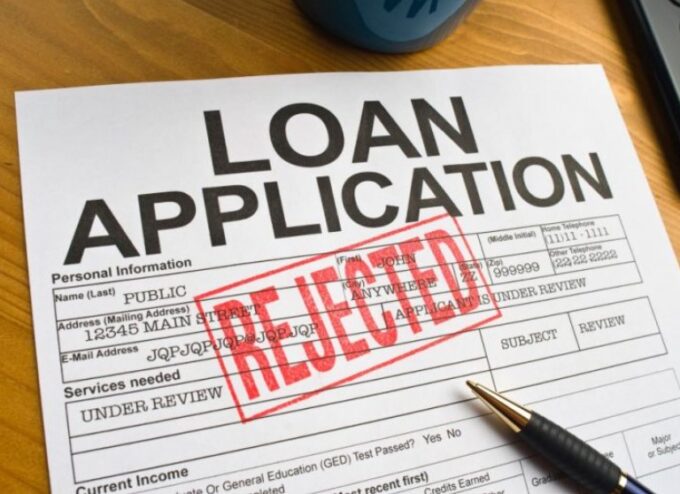Sometimes a person wants to take out a loan or a mortgage but can’t qualify because of high debt load, poor or no credit history. Is there a solution? Many borrowers start looking for a co-signer or a person who will help them make the desired purchase or take out a lending solution.
If you become a co-signer you may assist your family member or close friend to achieve their financial goal. However, it’s not all sunshine and rainbows when it comes to this borrowing decision. You should take into account all the pros and cons to protect yourself and your credit. Keep on reading to learn the top 10 rules why you should refuse.
Who Is a Co-Signer?

A person who applies for a lending solution together with another person and takes responsibility for the loan repayment in case of the main borrower’s default is called a co-signer. This individual provides legal consent that he or she is also accountable for the debt payment. Generally, borrowers ask their close friends or relatives to become co-signer.
In any case, you should have trusted relationships with this person so that he or she agrees to pay off your debt if something goes wrong. It’s widespread to seek co-signers when a borrower can’t qualify for a lending solution. Your credit history may be too short or too bad, you may have a high debt load and a high debt to income ratio.
All of these reasons may cause the rejection of your loan request so it may be necessary to search for alternative solutions. Payday loans in Canada via North’n’loans are easier to obtain as they are given for the short term, but long-term lending solutions or mortgages won’t be approved if your financial history is poor. A co-signer is a person with a higher credit rating and better payment history so that creditors are certain their funds will be returned on time.
Becoming a Co-Signer: To Be or Not to Be?
In theory, any person you know may become a co-signer. In reality, it’s likely going to be a relative or your close friend. If you are prequalified and get offered high-interest rates by the lender, you have a possibility to find a co-signer and qualify for better terms.
The lending solution will become more flexible and affordable for the borrower if he or she finds a cosigner. On the other hand, things may not go well for the co-signer in case of bankruptcy or non-payment. Here are the top 10 loan rules to follow if you consider being a co-signer:
1. You can lose your relationships

If you decide to become a co-signer for your friend or relative they may be extremely grateful to you. No surprise, you will save them from paying sky-high interest rates. Also, if the person doesn’t have collateral to secure the debt, he or she will be happy to find a cosigner to help them obtain a necessary lending option. If things go wrong and the borrower won’t be able to repay the debt on time, you will be the one responsible for this debt. Hence, your relationships may be damaged.
2. You are in charge
It’s not about signing a contract and walking away thinking that now you’ve helped your family member or a friend. The whole process just begins once you decide to become a co-signer and sign the agreement. You are the one in charge of the debt repayment in case the main borrower can’t manage it. Are you ready to pay the whole sum if something goes wrong?
3. Limited credit flexibility

Once you sign up for a mortgage or a long-term lending solution, you should keep in mind that your debt-to-income ratio will increase. So, your credit flexibility will become limited and you might not qualify for another big sum if you urgently need it.
4. It can affect your credit
If the borrower misses the loan payments or defaults, your credit can also be seriously affected. In case, a co-signer can’t make on-time payments for several months in a row, their credit rating will go down, while the debt may even be sent to the collections’ office. It means you will have to deal with higher fees and additional charges.
5. You will be required to repay the debt

If the borrower defaults, declares bankruptcy, or dies, a co-signer may be legally forced to repay the existing debt. The lender may approach a co-signer before the borrower in some cases as it’s allowed by the law. In other cases, a lawsuit may force this person to return the debt to the creditor.
6. You will have stress
It’s always hard to talk about money. If your relative or friend is having financial disruptions at the moment, he or she may often talk about them. Such tough conversations can add stress as you never know if the person will be able to repay the whole sum on time.
7. It can limit your borrowing ability

Potential finance-related service providers always make their lending decisions based on several criteria including debt-to-income ratio and credit history. If you already have too much debt and a co-signed loan agreement on your credit report, it may limit your ability to borrow in the nearest future as it will seem you have more debt than you can manage.
8. Think about your monthly income
If you have a steady source of income, you may qualify for being a co-signer. But you never know what may happen in the next month. What if you get fired or lose your position? Do you have additional income sources or money savings to support your needs? Keep in mind that you will also be partially responsible for the borrower’s debt.
9. Your own loan request may be rejected

A co-signed loan agreement will also show up on your credit report as your debt as well. So, when you decide to request a large loan or a mortgage you may be declined as the lender will see that you already have enough debt to repay.
10. Acknowledge that you realize the risk
Finally, you should understand what it means to become a co-signer. Admit the risks you are facing and ask yourself if you really want to take this burden. It may not be easy to say “no” to your friends or relatives but your financial security should be the top priority.
It may be a good decision to find a cosigner to secure your debt, but it’s not that easy for the co-signer to take this responsibility. Protect yourself and take into account these rules to avoid mistakes and unpleasant consequences.









